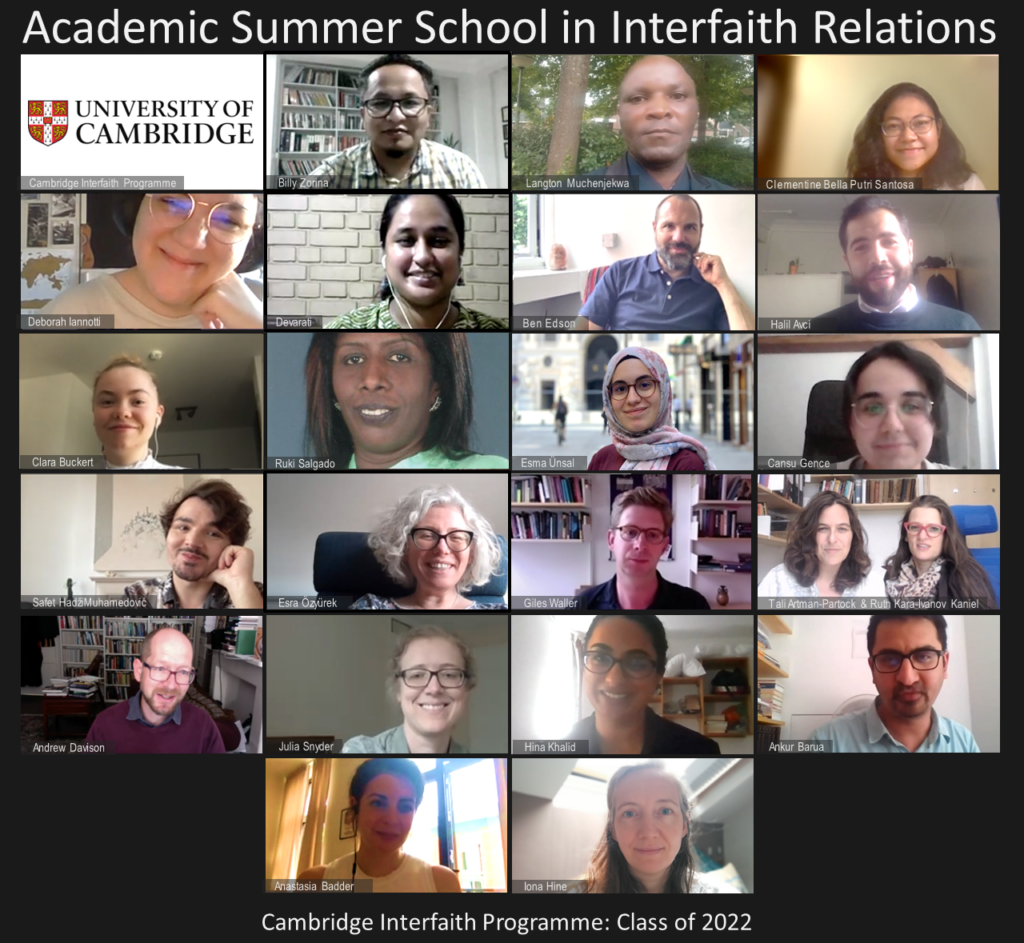“The Sri Lankan multi cultural ethnic ethos and religious milieu is religious diversity,” shares JPII Center Leader (Cohort XIII) Ruki Salgado. An academic by profession, Ruki has been a teacher and mentor at the Theological College of Lanka. “In my journey to further interfaith encounters in Sri Lanka among different religious groups, I am exploring new avenues of active engagement by implementing different theoretical and practical approaches to interfaith relations. Therefore, I requested for a grant to participate in the online ‘Cambridge Academic Summer School in Interfaith Relations’ to further my knowledge and gain wider exposure to interfaith relations.”
Ruki applied for and won a grant through the John Paul II Center for Interreligious Dialogue and attended the Cambridge Interfaith Programme’s (CIP) Academic Summer School in Interfaith Relations in July 2022. This program, held online, included a variety of courses, such as: “Scripture & Violence: Community Interpretation and the Realities of Violence in Religious Texts” with Julia Snyder; “Visual Approaches to Interfaith Relations” with Safet Hadži Muhamedović; and “Inter-religious Relations in South Asia” with Hina Khalid.
Since completing her Diploma in Interreligious Dialogue at the Angelicum—a virtual experience due to the COVID-19 pandemic—Ruki has been involved in creating interfaith initiatives in Sri Lanka among its inhabitants of many traditions: not only among the Buddhists, Muslims, and Hindus, who constitute the majority of the Sri Lankan population, but also among Catholics, Protestants, and the increasing number of Christian evangelical groups.
Ruki has been holding sessions on “Teaching English Language Skills by Using Interfaith Religious Texts” by Zoom and sometimes in-person, free of charge for participants. “The target group is High School students,” explains Ruki, “university undergraduates and women (irrespective of age, from different walks of life). The project objective is to create interreligious awareness as a first step.”
“Attending ‘Cambridge Summer School in Interfaith Relations’ helped me further explore and discover innovative and productive ways to engage with folks from other religions, especially in South Asian context,” says Ruki. “Since religion and politics are intertwined in the Sri Lankan context, I was encouraged to think rationally about the relation between religious plurality and politics, since ‘religious conversion’ issues have become politicized in historical context and currently.”
Ruki points to the sessions on “Scriptural Reasoning” as important in helping her to understand the value of scripture in broader contexts and to communicate about it with people from other traditions. She was therefore happy to be one of the Leaders representing the JPII Center at the Scriptural Reasoning session during the digital festival to launch the Rose Reconciler Hub in mid-November 2022.
“Visual Approaches to Interfaith Dialogue” offered Ruki insights on her own context; these visual approaches, Ruki says, “can be used as a tool to encourage and foster interfaith relations networking by understanding the synthesis of Interfaith relations in the complex mosaic religious landscape of Sri Lanka in the context of post war religious conflict. For example,” she continues, “most Buddhists and Hindu temples are very decorative with exquisite sculptures with historic and archeological significance and value. Some of the catabolic churches built during the Colonial era are magnificent structures of architecture and sculpture as well.”
“Since the Indian Ocean Island is a multi religious pluralistic island, I learned the importance of utilizing ‘syncretism of shared sacred landscapes’ to foster interfaith relations among folks from different faith traditions.” Ruki points out that many public places in Sri Lanka—from schools to recreation centers, from government institutions to tourist hotels—“have shared sacred spaces that are accepted and used by all religions.”
Ruki concludes: “I hope to pursue research in ‘visual approaches to interfaith dialogue’ and ‘syncretism of shared religious landscapes’ as a common medium and platform for strengthened interfaith relations and post graduate studies.”
Ruki’s participation in the Cambridge Interfaith Programme’s (CIP) Academic Summer School in Interfaith Relations was supported by a JPII Center grant.

